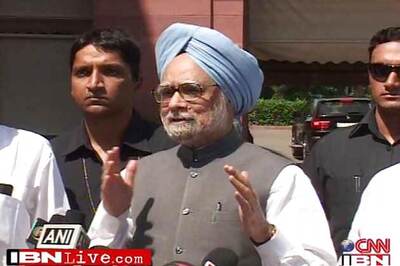
views
New Delhi: Mere act of slapping a man by his wife in front of others does not tantamount to instigating the husband to commit suicide, the Delhi High Court has said.
The order came while discharging a woman for the alleged offence of driving her husband to commit suicide by slapping her in presence of others.
"Even if one were to consider the incident of alleged slapping as instigation then one has to keep in mind that the alleged conduct should be such as to drive any normal prudent person into committing suicide," Justice Sanjeev Sachdeva said.
"Mere act of slapping the husband in presence of others would not under normal circumstances instigate a husband to commit suicide," he said.
The court said there was absolutely no ground to proceed against the woman as the prosecution initiated against her would "only result in sheer harassment to her without any fruitful result".
"The trial court has clearly erred in holding that prima facie material exists against the accused (woman) for framing of charge under Section 306 (abetment of suicide) of IPC," it said, adding that the lower court's March 2017 order was "not sustainable".
According to the prosecution, the couple got married on February 25, 2015 and became parents to a girl child months later. In May, the woman left her husband's house after disputes arose between them.
On August 2, 2015, the husband attempted to commit suicide and was hospitalised but died the next day.
A suicide note was allegedly recovered from the man's bed and a case of abetment to suicide was lodged by the police.
The trial court had noted in its order on charge that the woman had slapped her husband on July 31, 2015 and he committed suicide on August 2.
The deceased's father claimed that his son had ended his life as his wife's act had left him embarrassed.
However, the high court, while dealing with the woman's plea challenging the framing of charge against her, noted that the alleged suicide note relied on by the prosecution did not refer to any incident of slapping.
Instead, the note alleged that the woman had accused her husband of having an extra-marital affair with his mentally-ill brother's wife.
"Even if the suicide note was to be taken on its face value, the allegation in the suicide note does not show that any conduct per se amounts to instigation to the deceased to commit suicide," the high court said.



















Comments
0 comment